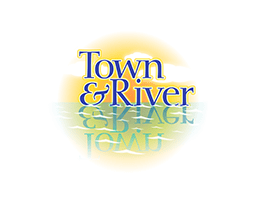By Gary Hudson, Chair, Deed of Restrictions Committee (this committee handles violations and architectural review)
Often your Town and River Deed of Restriction Committee hears from a homeowner who is in violation of a deed of restriction (DOR). An owner will try to excuse or defend their violation claiming that the Association is “selectively enforcing” the DOR. Statements often include “So and so down the street was allowed to do such and such” or “So and so is in violation of the same thing the Board is charging me with”. Having been involved with the association for well over a decade, I can unequivocally state that I am not aware of any “selective enforcement”.
Town and River Civic Association Bylaws provide that the Deed of Restrictions Committee has the responsibility of investigating violations of the restrictions either noticed or brought to their attention. If a violation is neither noticed nor brought to the committee’s attention, it cannot be addressed. In addition, a portion of Town and River is not covered by any deed of restriction (Unit A, Sections 1 and 2, and Unit 2) as these were allowed to “expire”. There are also a few “orphan” properties which are either unrecorded or un-platted. The remainder of Town and River is covered by one of three different deeds of restriction.
The most significant single difference among the three Deeds of Restriction (DOR) governing T&R properties is property line setbacks; depending on the DOR these are either 7.5’, 12.5’, or 15’ (these apply to structures such as buildings, pool cages, and docks). If an owner is “allowed” to build something closer or farther away from a property line than a neighbor, it is because the owner is either in a different DOR or the property is not governed by any DOR. The most striking example of this disparity is homes on North Waterway. Twenty-one of the homes are in Unit A, for which the DORs have expired. Sixteen of the homes are in Unit 3, which is governed by the Amended, Restated, and Combined Deeds of Restriction (ARCDOR).
A significant issue facing the board is docks being constructed in violation of setback requirements. The homeowner notwithstanding, some contractors who either know or should know better are complicit. Last year a dock that was built too close to the property line was partially dismantled and re-constructed to bring it into compliance. There are two other docks built in violation of setbacks which have legal proceedings pending. As with other violations, the reason is either ignorance (not an acceptable excuse-the homeowner bought into the DOR when the property was purchased), or arrogance (most certainly not a valid defense) or “Well, others are doing it”. “Others are doing it” may be true. If so, the reasons are one of the following:
- The property may not be covered by a DOR
- The property may be covered by a different DOR than yours
- The genesis of the violation may pre-date the consolidation of most of the DORs in 2004
- The violation may not have been “noticed or brought to the attention” of the DOR Committee
- In the case of a setback, a variance may have been granted. Not likely:
- ARCDOR prohibits the granting of setback variances.
- For Unit 6 properties the process for granting a variance is onerous.
- For Unit 11, the setbacks are same as county code. The term “variance” does not appear in that DOR.
- In the absence of any of the above reasons, it’s probable that the board is aware of the violation and is addressing it through administrative and lastly through legal means.
Legal Means (excerpt from ARCDOR):
Section 7. Enforcement; General Provisions. (A) Enforcement. Enforcement of these covenant, conditions and restrictions may be by a proceeding at law or in equity and may be instituted by the Association, its successors or assigns, or by any Lot Owner, against any person or persons violating or attempting to violate or circumvent any covenant, condition or restriction, either to restrain violation or to recover damages, and against any Residential Lot to enforce any lien created by these covenants. Failure of the Association or any Lot Owner to enforce any covenants, condition or restriction herein contained for any period of time shall not be deemed a waiver or estoppel of the right to enforce same thereafter. In any enforcement action, including appeals, the prevailing party shall be entitled to recover its reasonable attorney’s fees and costs from the non-prevailing party.
The front page of the July issue of this newsletter explained those property improvements which require approval by the association. Newsletter past issues may be found at https://townandriverfl.com/newsletters/
